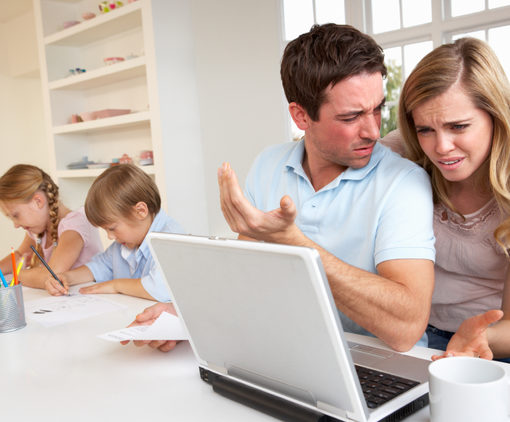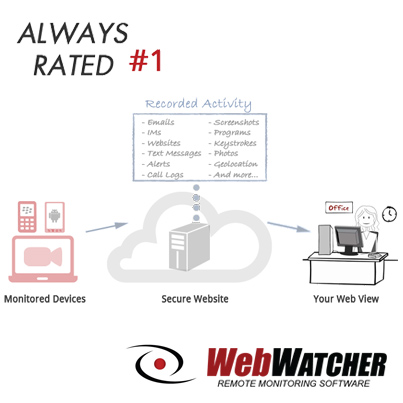Good parents help their children with their homework, feed them a balanced breakfast, and spy on their children’s smartphone use and online behavior. Or do they?
The reality is that good parenting varies wildly between families, cultures, locations, and specific situations, so it’s really hard to tell at a glance what is or isn’t good parenting without knowing more context. Most parents are honestly doing the best they can with the information, resources, and abilities that they have.
That doesn’t mean that every move that they make is right – we all make mistakes – but it does mean that good parenting doesn’t necessarily always look like you might expect it to from your perspective.
So is spying on your kid’s phone good parenting? Well, like almost anything else, it depends. But there may be other options. The internet and smartphones are still relatively new as far as parenting philosophies are concerned – it’s not as if parents have been passing down advice on how to manage their children’s smartphone use for multiple generations.
There’s plenty of room for trying new things and new strategies and learning what really works best for kids. Before you conclude you need to spy on your child’s smartphone to be a good parent, take a look at some other strategies that could help you keep your kids safe online and still protect them from various online dangers.
Teach Your Kids About Online Safety
It’s true that there are plenty of dangers online. And all you have to do is scan the headlines to see that children and adults alike are often susceptible to these dangers. When it comes to kids, much of the risk comes from their inexperience and limited knowledge of the world that they can use to make judgments, and those factors can be mitigated through education.
It’s important to talk to your kids frankly about the dangers they may run into online – what they are, how to recognize them, how to respond to them, how to advocate for themselves and protect themselves. Kids need to know when they should come to you or another adult for help, but they should also know that they can be empowered to take action to protect themselves when the situation requires.
Helping your children learn to use the “block” and “report” functions on social media sites that they frequent, for example, gives them tools they can use to put a stop to a scary situation themselves right away, without having to look around for an adult first. They can then talk to you about it and decide if further action is needed.
Teach Your Kids About Being Good Digital Citizens
Kids can also avoid a lot of problems online by avoiding behaviors that are likely to attract trouble to them. Cyberbullying, for example, is an issue that kids commonly find themselves on both sides of – many victims also victimize others.
That doesn’t mean that anyone deserves to be cyberbullied, of course. It’s important not to victim blame. But it’s also important for kids to learn that people respond to the type of energy they receive and that being a kind person invites kindness in return. Help your child understand that “jokes” that hurt and humiliate others aren’t funny and aren’t the kind of behavior you expect from them.

Make sure that your children understand that the consequences of their actions can be far-reaching and much bigger than what they expect. Pictures, posts, and videos can go unexpectedly viral. Sometimes things shared with the expectation of privacy don’t stay private.
Help your children fight the impulse to do or share things online without thinking through the possible consequences. Learning to think ahead is and exercise impulse control is an important skill on and off the internet, and it’s never too early for kids to start learning.
Independence – But With Training Wheels
With the right kind of instruction and oversight, a smartphone can actually be a good place for children to begin practicing independence. And you do want your children to learn independence, even while they’re still children. It’s often much easier to repair or recover from mistakes that your child makes while they’re young than mistakes they make when they’re adults on their own.
Give your children age-appropriate room to be independent while they’re still under your care. This is a good strategy for helping them work out the kinks of independence before they reach adulthood so they won’t be blindsided by the consequences of poor decisions.
This does not mean that you should just drop your child in the digital playground all alone, however. Parental monitoring tools can function sort of like training wheels for digital independence. You can give your child an appropriate amount of latitude to explore their world and test out their independence while overseeing them and being ready to step in if things start to go sideways.
Monitoring and Spying Aren’t Necessarily the Same Things
Digital monitoring isn’t necessarily the same thing as spying. Spying has a negative connotation, and if your child finds out after the fact that you were snooping on private activities and conversations, it can break the trust between you.
Monitoring, on the other hand, can be done out in the open. Let your child know that monitoring is a condition of the privilege of having a phone. Make it clear that you’re monitoring for the sake of your child’s safety and wellbeing, not looking to nose in on their private life. Discuss boundaries for what you will and will not be looking for on the phone, and situations in which you might cross those boundaries.
Ongoing honest conversations with your child will do what spying usually can’t – build trust and confidence between you and your child. With that trust, you may eventually not feel the need to monitor their activities as closely. And your child may feel comfortable coming to you on their own with a problem, a concern, or even with an admission that they made a mistake that they need help fixing, without you having to discover it behind their backs.
Every parent must make their own decisions about the internet and smartphone safety based on their own child and family’s needs. Having the right monitoring tools on hand can help. To find out more about how parental monitoring software can work for your child, WebWatcher invites you to get our risk-free trial.





